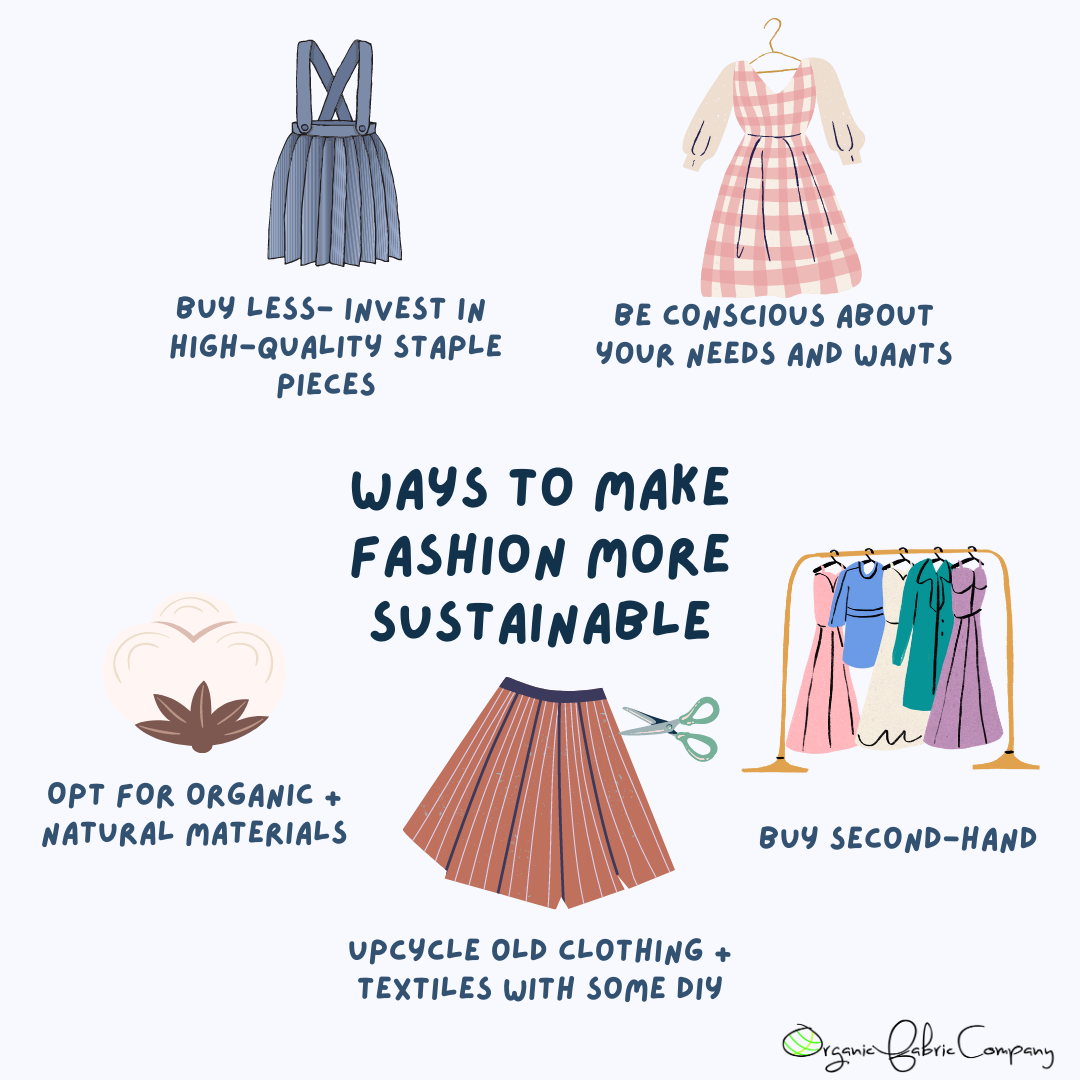Find Cape Town Sustainable Fashion Boutiques as well as Brands
Find Cape Town Sustainable Fashion Boutiques as well as Brands
Blog Article
Stay Ahead of the Curve by Checking Out Innovative Style Trends
In a sector as dynamic as style, remaining ahead entails more than simply following existing trends-- it requires an expedition of development. The merging of modern technology and style heralds a new period of customer involvement.

Welcoming Smart Textiles
Over the last few years, the garment industry has experienced a transformative change with the integration of wise fabrics, a cutting-edge development that mixes modern technology with fabric. This evolution stands for not just a combination of aesthetics and performance yet likewise a considerable leap towards sustainability and personalization in style. Smart textiles, additionally understood as e-textiles, installed innovative electronics such as sensing units and conductive strings within the material, making it possible for garments to connect with the setting or the wearer.
These textiles are created to keep an eye on physiological parameters, such as heart rate or body temperature, providing real-time health analytics. Beyond health and wellness applications, wise textiles are additionally being made use of for adaptive clothes, which can transform color or pattern in response to environmental stimuli, hence offering a dynamic style experience.
Additionally, the development of energy-harvesting textiles that create power from movement or sunshine is leading the way for self-sufficient wearable modern technology. This advancement is appealing to eco conscious customers and designers intending to reduce the ecological impact of style. As research and development in this field breakthrough, smart textiles are expected to come to be progressively common, reshaping the landscape of modern style with their multifunctional capacities.
The Rise of 3D Printing
Changing the manufacturing landscape, 3D printing has arised as a game-changer in the fashion industry. This sophisticated technology has actually enabled designers to press the borders of creative thinking, creating intricate and tailored garments that were formerly unimaginable. By leveraging electronic design and additive production, 3D printing helps with the development of complex geometries and patterns, enabling designers to experiment with new structures and frameworks.
A noteworthy benefit of 3D printing in vogue is its capacity to create on-demand, decreasing waste and lowering stock requirements. This effectiveness not just enhances production processes yet also permits rapid prototyping, allowing developers to bring their visions to life in a shorter timeframe. Moreover, 3D printing sustains customization to a level unmatched by standard methods, providing one-of-a-kind designs and individualized fits customized to private consumer choices.
The increase of 3D printing has also equalized fashion, making it available to arising designers that can now fabricate premium items without significant monetary investment in standard manufacturing facilities. As modern technology remains to advancement, the apparel industry is positioned to harness the complete potential of 3D printing, exploring new products and strategies that will most certainly redefine just how fashion is conceived and produced.
Sustainable Fashion Technologies
As the fashion business comes to grips with the pressing need for ecological obligation, sustainable fashion technologies have actually arised at the center of transformative modification. The growing recognition of ecological influence has fueled a change in the direction of even more eco-conscious practices and products. Designers and brand names are currently prioritizing sustainability, including methods that reduce waste and lower carbon impacts.
One significant development is the rise of round fashion, which highlights recycling and upcycling to expand the lifecycle of garments. This strategy not just decreases waste however likewise encourages customers to take on a more conscious method to apparel usage. Furthermore, the usage of sustainable materials, such as organic cotton, hemp, and recycled polyester, has actually gotten traction. These products need much less water and power during manufacturing, substantially decreasing environmental impact.
Another breakthrough hinges on the fostering of ingenious dyeing techniques that use waterless procedures or natural dyes, thus lowering the huge quantities of water and chemicals typically used in fabric dyeing. Moreover, advancements in biotechnology have actually caused the production of lab-grown natural leather and materials, using ecologically friendly and cruelty-free choices to traditional materials. Through these pioneering efforts, the fashion business is making purposeful strides in the direction of an extra sustainable future.

Tech-Integrated Apparel
Tech-integrated clothing stands for a groundbreaking blend of fashion and technology, reshaping just how individuals engage with their clothes. This ingenious domain name is noted by the addition of smart textiles and ingrained electronic elements, enhancing both capability and aesthetic charm. From health and fitness trackers installed in sports apparel to warmed jackets managed via mobile phone applications, tech-integrated apparel provides customers unprecedented comfort and flexibility.
Pioneering brand names are driving this fad, focusing on producing garments that react to environmental stimulations or user commands. As an example, some garments can alter color or pattern in response to temperature changes, while others integrate biometric sensors to monitor wellness metrics like heart price or stress degrees. The seamless assimilation of technology right into fabrics also encompasses ecological sustainability, with initiatives to create self-cleaning materials or garments that adjust to weather conditions, therefore address reducing the demand for several layers.
Furthermore, the arrival of wearable modern technology is not simply restricted to clothes however reaches devices like watches and eyewear, further expanding the scope of tech-integrated style. As the market proceeds to introduce, the possibility for customization and personalization in apparel expands, offering consumers unique, tech-enhanced style experiences that cater to their individual demands and choices.
Future of Virtual Style
In recent times, the future of online fashion has actually emerged as a transformative pressure within the sector, leveraging innovations in electronic technology to redefine just how fashion is produced, experienced, and taken in. By integrating augmented reality (AR), online truth (VR), and 3D style tools, designers can now craft immersive and interactive experiences that transcend typical style borders. Digital fashion permits the development of garments that exist solely in electronic environments, using countless possibilities for development without the restrictions of physical production.
This electronic shift not just offers possibilities for creative expression yet also addresses sustainability problems intrinsic in typical fashion methods. Cape Town Sustainable Fashion. By removing the demand for physical resources, digital style minimizes waste and decreases carbon footprints. Furthermore, the rise of online style aligns with the boosting consumer demand for one-of-a-kind and individualized experiences, as online garments can be personalized and customized to individual preferences with ease

Final Thought
The garment industry's future depend on the assimilation of sustainable techniques and innovative technologies - Cape Town Sustainable Fashion. Smart fabrics and tech-integrated garments are enhancing performance, while 3D printing provides opportunities for customization and waste decrease. Sustainable style, with circular methods and eco-friendly products, demonstrates a commitment to ecological stewardship. Additionally, online fashion is poised to redefine consumer communications. Adapting to these patterns is essential for brands seeking to remain competitive and pertinent in this quickly developing landscape.
In recent years, the fashion industry has observed a transformative shift with the assimilation of smart fabrics, a sophisticated advancement that mixes modern technology with textile.As the fashion market grapples with the pushing requirement for ecological responsibility, lasting check over here style innovations have actually emerged at the leading edge of transformative modification.In recent years, the future of virtual fashion has arised as a transformative pressure within the market, leveraging improvements in digital technology to redefine exactly how style is created, experienced, and taken in. The increase of digital fashion lines up with the raising consumer demand for customized and one-of-a-kind experiences, as online garments can be customized and tailored to individual choices with convenience.
The fashion sector's future lies in the combination of lasting practices and ingenious innovations.
Report this page